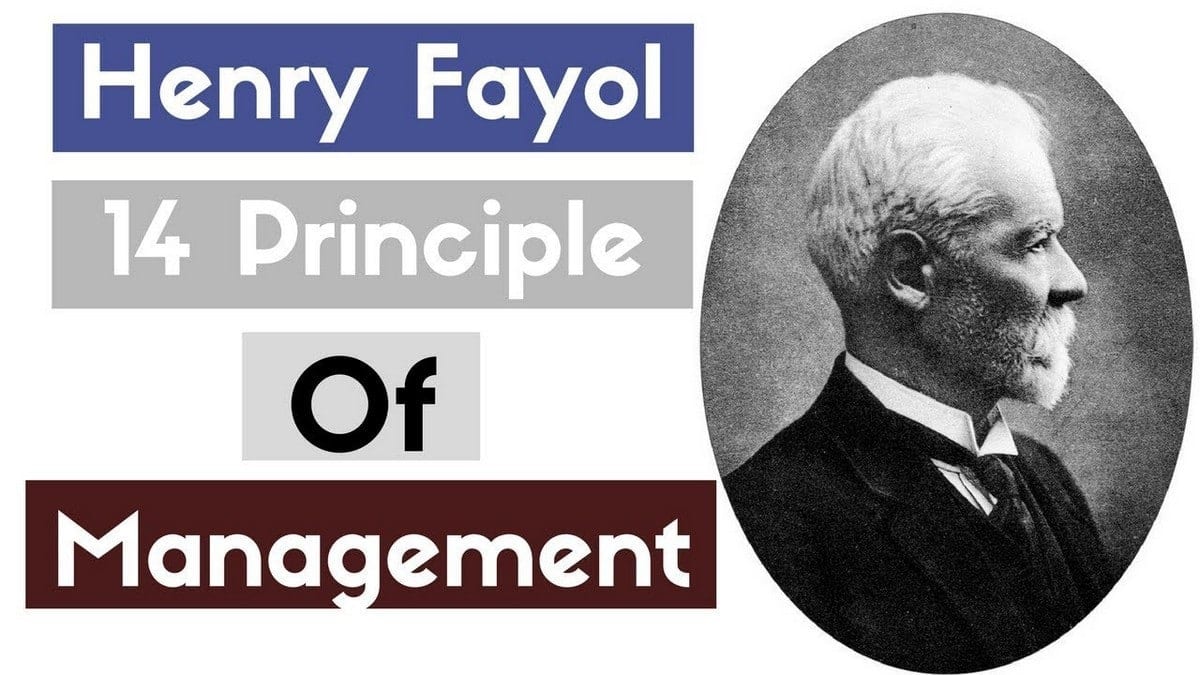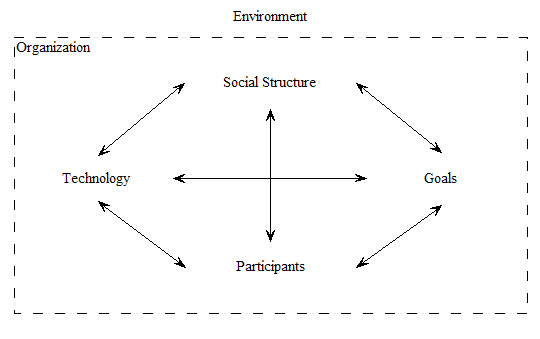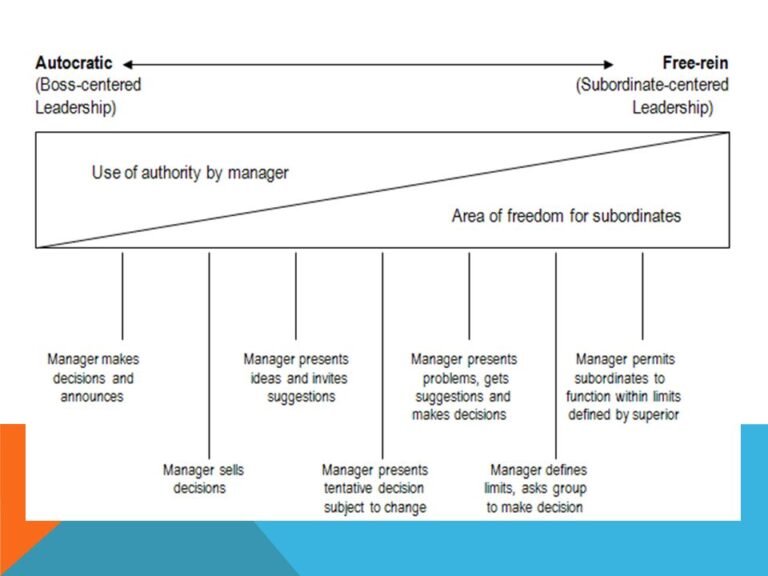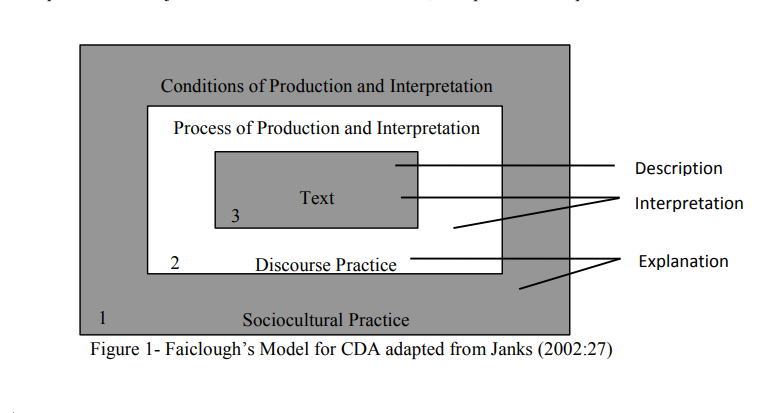Henri Fayol 14 Principles of Management with Examples
Although his work wasn’t widely known in the United States until 1949, Henri Fayol is considered one of the fathers of modern management, often referred to as the administrative theory.
Henri Fayol was a French engineer. When he looked around the company management at the tail end of the Industrial Revolution, he saw a great need for a systematic approach to train managers. Fayol believed that an enterprise’s success depended on its leaders’ administrative ability than on their technical knowledge.
Fayol came to this conclusion after reflecting on his own experiences as the managing director of a French steelmaker known as Commentry Fourchambault.
Fayol was hired as his managing director, which is basically the equivalent of CEO, to oversee the liquidation of Commentry. Instead, Fayol put together a detailed plan on how to bring the Commentry back to financial solvency.
Within 12 years, Commentry rose from its almost inevitable demise and became one of France’s most valuable firms.
While reflecting on his experiences, Fayol realized that this success wasn’t due to his engineering background but his ability to manage people and get work done through others.
He saw these large organizations and needed managers with high managerial competence levels, so he offered his perspective to get the conversation going.
He wrote in his book it is a case of setting it going, starting general discussion
– That is what I am trying to do by publishing this survey, and I hope a management theory will emanate from it….
and it certainly did by laying it down, and his book is by no means meant to be the end of the discussion, just the beginning.
Fayol identified six activities of the industry. These are the general or overarching activities it takes to run an organization.
💥🎁 New Year & Easter Deals On Amazon !
Don't miss out on the best discounts and top-rated products available right now!
🛒 Shop Now and Save Big Today!*As an Amazon Associate, I earn from qualifying purchases.
- The technical activities -That means the production and the manufacturing concerns.
- Commercial skills -That’s the buying and the selling and exchanging of goods and services.
- Financial skills – That’s where you search for and use capital or money optimally.
- Security skills -That’s the protection of property and people.
- Accounting skills -That’s the balance sheets that costs and keeping track
- Managerial activity skills -Which was his real area of concern was the managerial activity. That means planning, organizing, command, coordination, and control.
When Fayol looked at the overall organization’s hierarchy, he saw that these activities played out in different proportions, depending upon the employee’s position in an organization.
For example, at the very bottom of the organization, you had what he called the workmen, and they didn’t need much managerial knowledge because they didn’t do that much. Still, they needed a lot of technical knowledge.
Somewhere in the middle of the organizational hierarchy, you have the head of a shop, which today would probably be like the head of a department or a middle-level manager. This person obviously needed more managerial knowledge and competence than a frontline worker and a little less technical. But they also needed to be concerned with things like the financial side, the security side, and the accounting side.
By the time you got up to the top of the organization, he had called it the manager. Today we call the president or CEO. This person was doing a lot, but the lion’s share was managerial activity.
They needed other knowledge as well, though they needed to be involved in technical, commercial, financial security, and accounting, but in lower levels proportional to the managerial responsibilities. And this is where Fayol identified a gap, very little systematic training in Management skills. He then would train people on how to become better managers,
Fayol further broke these management activities (managerial competence) down into five main areas, namely;
- Planning: The managers need to look ahead and chart a course for the organization.
- Organizational skills; They also needed organizational skills. They need to select and arrange people in the best way possible.
- Command; They needed to be in command. That meant they were overseeing things they need to lead and then stay out of the details they needed that t big picture point of view.
- Coordination; Coordination was another important responsibility. They need to harmonize and facilitate the work between and among the different departments and their organization.
- Controlling; They also had to maintain control. They ensured compliance in all those other areas like accounting, finance, technical and quality control.
These management activities get at the big picture ways that managers were going to be spending their time.
In addition to founding the functions of management, which we now know as planning, organizing, leading, and controlling, Fayol developed the 14 principles of management, these principles were;

Henri Fayol 14 Principles of Management with Examples
Henry Fayol believed that the 14 principles of management would help organizations engage in excellent management practices, and many of these principles have become common practices and organizations today. They include;
💥🎁 New Year & Easter Deals On Amazon !
Don't miss out on the best discounts and top-rated products available right now!
🛒 Shop Now and Save Big Today!*As an Amazon Associate, I earn from qualifying purchases.
Division of Work/Labour
The first principle of management is the division of work, commonly referred to as Labor division.
Fayol believes that by separating work into smaller tasks, workers can develop expertise in a specific area.
Since workers would perform a series of specific tasks instead of more extensive tasks, it is safe to say that workers would become more proficient in these tasks over time.
Besides, some workers are not suited for specific tasks, so workers could be placed in areas where they can ultimately excel by dividing the work into a smaller set of functions.
That’s the task specialization. This is meant to increase productivity, where each person got a very small task, and they got good at it.
Authority and Responsibility
The second principle is one of authority and responsibility.
Fayol claimed that a manager’s authority should be consistent with his level of responsibility; while authority is viewed as the right to give orders, responsibility is seen as being accountable.
Thus, someone with authority in an organization, at least according to Fayol, should also be held accountable for the orders.
In other words, the manager has the right to give orders and exact obedience. That’s part of being a manager.
Discipline
Discipline is often described as the practice of training people to obey rules. In the case of Fayol administrative theory, discipline involves creating clear rules and procedures for employees at all organizational levels to follow.
💥🎁 New Year & Easter Deals On Amazon !
Don't miss out on the best discounts and top-rated products available right now!
🛒 Shop Now and Save Big Today!*As an Amazon Associate, I earn from qualifying purchases.
These rules were meant to establish order as well as ensure good behavior in the workplace. And to establish an incentive for employees to follow these rules, Fayol advocated that penalties should be used.
That meant obedience, application, and energy on the part of the individual employees. Then the manager would warn them they would fine and suspend people to enforce that discipline.
Unity of Command
The fourth principle of management is the unity of command.
Henry Fayol believed that unity of command represented the single most fundamental principle in these management principles.
From this principle, Henry Fayol claims that all of the other tenets originated; he firmly believed that no one conserved two masters at the same time.
This often does confuse the workers and conflict among supervisors as they struggle over whose direction should be followed. So Henry Fayol argued that each worker should report to and receive orders from just one supervisor.
This would reduce misunderstandings and ultimately lead to an environment in which all employees knew exactly what was expected of them.
Unity of Direction
The fifth principle of management is the unity of direction.
Instead of individuals and teams pursuing their own goals that may conflict with one another, Fayol claims that the entire organization should be pursuing a common goal or objective.
Getting everyone in the organization working towards the same goal is absolutely critical to the organization’s success.
💥🎁 New Year & Easter Deals On Amazon !
Don't miss out on the best discounts and top-rated products available right now!
🛒 Shop Now and Save Big Today!*As an Amazon Associate, I earn from qualifying purchases.
That meant one head and one plan for a group of activities having the same direction, so everybody is pushing in the same direction.
Subordination of Individual Interests to General Interests
Somewhat in line with this principle is the sixth principle of management, which is the subordination of individual interests to general interests.
Successful organizations require all individuals to put aside their own self-interests and pursue only what is in the group’s best interest. Anyone’s interest in an individual should certainly not take priority over the organization’s interests as a whole.
That meant that you, as an individual employee, should put your personal interests aside and pursue the greater purpose.
Remuneration
The seventh principle of management is Remuneration. Remuneration represents fairness in the pay practices of an organization.
Fayol believes that variables such as labor supply, cost of living business, profitability, and general business conditions should all be considered when establishing a worker’s pay rate.
If organizations do not maintain fair and equitable pay practices, it makes it more challenging to encourage workers to abandon their own self-interests for the sake of those of the team.
He thought people should be paid fairly and rewarded for what he called well-directed effort. In other words, if people are good workers, you should pay them fairly.
Centralization
The eighth principle of management is one of centralization.
Centralization represents the degree to which decision-making authority is concentrated in a few people’s hands or spread throughout the organization to employees at different levels.
💥🎁 New Year & Easter Deals On Amazon !
Don't miss out on the best discounts and top-rated products available right now!
🛒 Shop Now and Save Big Today!*As an Amazon Associate, I earn from qualifying purchases.
By its very nature, a centralized organization establishes that only a few key individuals have the authority to make decisions.
Opposite to the centralized organization is decentralized, which means that decision making authority is given to employees at lower levels of the organization within certain boundaries.
Although Fayol agreed that a centralized form of distributing authority allowed for more accurate decisions to be made, since those who may lack experience are prevented from making decisions, he also believed that employees should be given some freedom to show initiative.
Since all organizations vary in terms of size and scope, Fayol claims that centralization or decentralization is mainly dependent on the organization itself.
However, Fayol claimed that organizations should only use a level of centralization necessary and instead focus on allowing individual workers with the freedom essential to show personal initiative.
Fayol believed that it was up to the manager to figure out the right balance of that centralized decision making versus decentralized delegated decision making in power.
If an organization is vast, it will have to decentralize a little more, but if it’s smaller, they could keep most of the decision-making power, and it was up to the managers to figure that out in any given case.
Scalar Chain
The ninth principle of management is the scalar chain. The scaler chain represents the organization’s hierarchy, which is commonly illustrated through an organizational chart.
A scaler chain’s presence allows employees to be familiar with where they stand in the organizational hierarchy and who they report to, and who they should approach if they have questions.
We call it the chain of command. He called it the chain of superiors where you would go up the chain and then cut across the organization somewhere and then down the chain of command to speak to somebody on the other side.
💥🎁 New Year & Easter Deals On Amazon !
Don't miss out on the best discounts and top-rated products available right now!
🛒 Shop Now and Save Big Today!*As an Amazon Associate, I earn from qualifying purchases.
Of course, Fayol believed in many cases it would be much more efficient to let people talk directly, and so as long as they’re okay with supervisors, he said, that they could do that.
Order
The 10th principle of management in order. For the sake of efficiency and coordination.
Fayol claims that there should be a place for everything, and everything should be in its place. Creating a clean and orderly work environment is essential to productivity and has implications for safety on the job.
That meant the right man in the right place.
To form an effective social order, he had to put people in the right place to get the best out of everybody.
Equity
The 11th principle of management is equity. Fayol believed that an essential element to successful leadership in an organization was the equitable treatment of workers by management.
If management intends to achieve long-lasting commitment from workers, it’s vital that workers were treated fairly.
Otherwise, workers may not pursue the organization’s goals or expend the appropriate effort to achieve those goals.
He had a desire for equity and the equality of treatment when dealing with people. He saw this as the right combination of kindliness and justice.
Stability of Tenure of Personnel
The 12th principle of management is the stability of tenure of personnel.
💥🎁 New Year & Easter Deals On Amazon !
Don't miss out on the best discounts and top-rated products available right now!
🛒 Shop Now and Save Big Today!*As an Amazon Associate, I earn from qualifying purchases.
This principle refers to management’s task of minimizing employee turnover because turnover, whether voluntary or not, could be very costly for an organization.
In addition to recruiting selection and training costs, organizations also have to deal with disruptions and output caused by employee turnover.
So to minimize these issues, Fayol claims that management should make every attempt to retain productive workers.
He wanted people to stay in their jobs when they were good at their jobs. He thought that was good for the organization.
Initiative
The 13th principle of management is initiative. This represents investing in the development of an organization’s workers.
Henri Fayol believes that management should encourage worker initiative, meaning the undertaking of new responsibilities.
This allows workers to acquire new skills while also freeing up management to perform other tasks.
Managers should encourage and inspire the initiative of employees. In other words, if you have a lot of lazy people hanging around, it partly is the manager’s responsibility to make sure they’re inspired and are taking the initiative.
Spirit of Cooperation
The 14th and final principle of management established by Henry Fayol is often referred to as the spirit of cooperation.
This principle refers to management’s responsibility to improve morale and promote a sense of unity in the workplace.
💥🎁 New Year & Easter Deals On Amazon !
Don't miss out on the best discounts and top-rated products available right now!
🛒 Shop Now and Save Big Today!*As an Amazon Associate, I earn from qualifying purchases.
To establish this, Fayol emphasized the importance of teamwork and communication in an organization.
Together, these 14 principles constituted effective management practices.
Although it’s been over 100 years since Fayol wrote of these principles in his book entitled General and Industrial Management, these principles are still widely agreed upon and followed today.
But perhaps an even more significant contribution to modern-day management was Fayol’s insistence that an organization’s success was determined more so by its leaders’ administrative ability as opposed to their technical knowledge.
As a result, the focus began to shift towards training and educating managers on current administrative demands.



